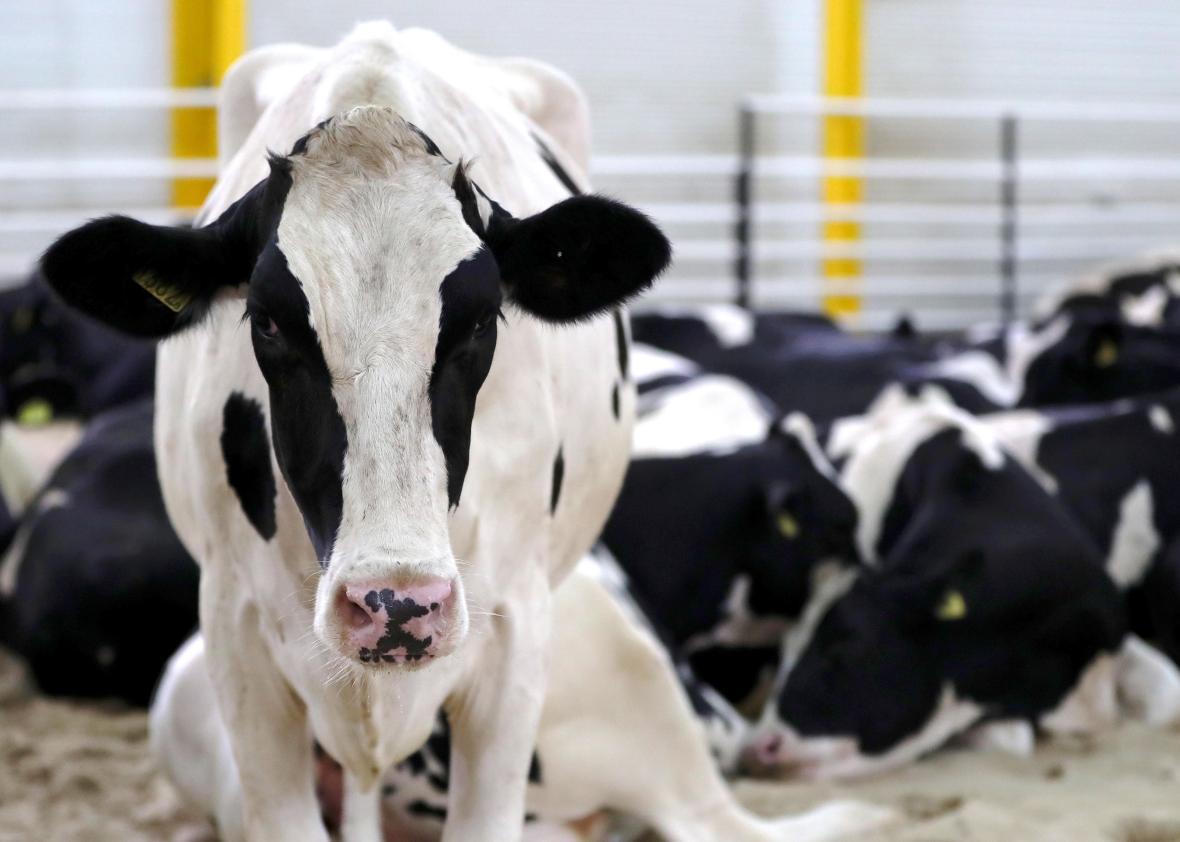Qatar, the subject of a crippling blockade by Saudi Arabia and other Gulf countries, will welcome 4,000 herbivorous foreigners in the coming months to help fulfill the country’s dairy demands. Arriving on a Qatar Airways flight from Germany via Budapest, the first batch of 165 cows landed in the tiny Gulf nation on Tuesday and were promptly transported to a newly built dairy facility.
Dairy products found in Qatari supermarkets used to be imported from neighboring Saudi Arabia. But on June 5, Saudi Arabia, the United Arab Emirates, Egypt, and Bahrain cut off diplomatic ties with Qatar and imposed the land, air, and sea blockade of their neighbor. Doha, the capital of the primarily oil-exporting economy, rejected a list of 13 demands as preconditions for lifting the sanctions, so the blockade continues.
According to one estimate, more than 99 percent of Qatar’s food is imported, primarily through its land border with Saudi Arabia. Although the Qatari government promises that there’s enough Ben & Jerry’s to keep the country of 2.7 million people happy, news of the blockade led many Qataris to stock up on supplies. “I’ve never seen anything like it – people have trolleys full of food and water,” one Qatari shopper told Doha News on the day the blockade was announced. Even as the blockade put Qatari shoppers on edge, it presented a business opportunity for others.
According to Bloomberg, the Qatari firm Power International Holding purchased the cows from Europe to be flown in via 60 flights. Chairman Moutaz al-Khayyat says he expects the cows to meet 30 percent of the country’s dairy demand. Qatar has also been seeking new trade routes, importing yogurt from Turkey and meat and fruit from Morocco and Iran. A rival to Saudi Arabia’s ambitions in the Middle East, Iran has also granted Qatar access to three of its ports, and Turkey flew four cargo planes of food to Qatar immediately after the blockade began. “New import arrangements have been made with different countries including Turkey to ensure uninterrupted supply of food products,” a representative of Qatar’s Lulu supermarket chain told the Peninsula in June.
Qatar, which currently boasts the highest per capita income in the world, has continued to dismiss the blockade’s economic toll. Even as the Gulf country has been hit with a ratings downgrade over the crisis, its leaders and people insist on its resilience.
“Even if we don’t import or export for the next year, we have enough materials to cover our infrastructure and private sector projects,” Qatari Foreign Minister Sheikh Ahmed bin Jassim Al Thani told Al Jazeera earlier this month.
“It’s a message of defiance, that we don’t need others. Our government has made sure we have no shortages and we are grateful for that. We have no fear. No one will die of hunger,” Qatari resident Umma Issa told Bloomberg.
And although the cows might enjoy their new surroundings, hundreds of camels have reportedly died from starvation and thirst after their Qatari farmers were kicked out of Saudi Arabia. According to the Independent, the Qatari government was able to save 8,000 stranded camels, but many died en route across the desert.
Maybe Qatar Airways’ cattle car isn’t a bad way to travel after all.
